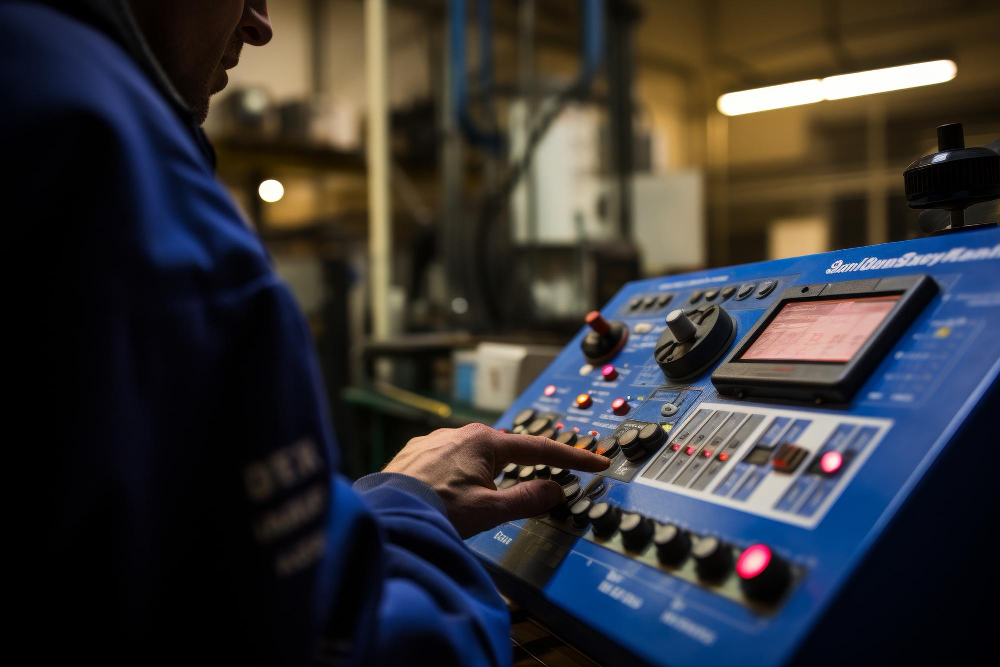Tips for Effective Corrosion Monitoring System Implementation
Corrosion monitoring systems are essential for maintaining the integrity and longevity of industrial structures and components. At CORCON Institute of Corrosion (CIC), we emphasize the importance of implementing robust corrosion monitoring systems to safeguard against corrosion-related failures. Here are some expert tips to ensure the effective deployment and utilization of a corrosion monitoring system:
Understand Your Environment
Assess the specific environmental conditions where the corrosion monitoring system will be deployed. Factors like humidity, temperature, and the presence of corrosive agents significantly influence corrosion rates. Understanding these conditions helps in selecting the most suitable materials and protective measures for your assets.
Choose the Right Monitoring Techniques
Select appropriate monitoring techniques based on your specific needs. Techniques such as electrochemical sensors, ultrasonic testing, and corrosion coupons each have unique advantages and applications. Properly chosen techniques ensure accurate and reliable data, aiding in the timely detection of potential corrosion issues.
Regular Calibration and Maintenance
Ensure that your corrosion monitoring system is regularly calibrated and maintained. Accurate data is crucial for making informed decisions regarding corrosion control. Regular maintenance also extends the lifespan of monitoring equipment, reducing long-term costs and improving system reliability.
Data Integration and Analysis
Integrate your corrosion monitoring system with data analysis tools. This integration helps in the real-time analysis of corrosion data, allowing for proactive measures to be taken before significant damage occurs. Advanced analytics can identify patterns and predict future corrosion trends, enhancing preventative maintenance strategies.
Training and Education
Invest in training for personnel responsible for operating and interpreting data from the corrosion monitoring system. Well-trained staff can identify potential issues early and take appropriate action. Continuous education ensures that your team stays updated on the latest techniques and technologies in corrosion monitoring.
Implement a Comprehensive Monitoring Plan
Develop a comprehensive corrosion monitoring plan that outlines the frequency of inspections, types of monitoring techniques to be used, and specific areas to be monitored. A detailed plan ensures systematic coverage and helps in prioritizing high-risk areas, enhancing overall corrosion management.
Utilize Remote Monitoring
Consider utilizing remote corrosion monitoring systems. These systems provide continuous data without the need for physical inspections, reducing downtime and labor costs. Remote monitoring also allows for real-time alerts, enabling quick responses to emerging corrosion issues.
Stay Updated with Technology
Stay abreast of the latest advancements in corrosion monitoring technology. Emerging technologies can offer more efficient and accurate monitoring solutions. Regularly reviewing technological developments can provide opportunities for upgrading existing systems, improving monitoring effectiveness.
Collaboration with Experts
Collaborate with corrosion experts and institutions like CORCON Institute of Corrosion for guidance and support. Our experts can provide tailored solutions to meet your specific corrosion monitoring needs. Partnering with industry leaders ensures access to the latest research, technologies, and best practices in corrosion control.
Regular Reporting and Review
Establish a routine for regular reporting and review of corrosion data. This practice ensures that any trends or anomalies are promptly addressed, preventing unexpected failures. Comprehensive reports also aid in documenting compliance with industry standards and regulations, supporting overall asset management strategies.
Frequently Asked Questions
What is a corrosion monitoring system?
A corrosion monitoring system is a collection of tools and techniques used to detect, measure, and analyze the rate of corrosion in materials, typically metals, in various environments. These systems help in preventing and mitigating corrosion-related damage, ensuring the integrity and longevity of infrastructure and industrial components.
Why is corrosion monitoring important?
Corrosion monitoring is crucial because it helps in early detection of corrosion, allowing for timely maintenance and repairs. This prevents unexpected failures, reduces maintenance costs, and ensures the safety and reliability of structures and equipment.
What are the common techniques used in corrosion monitoring systems?
Common techniques include electrochemical sensors, ultrasonic testing, corrosion coupons, linear polarization resistance (LPR), and remote monitoring systems. Each technique has specific applications and advantages depending on the environment and type of material being monitored.
Can corrosion monitoring systems be used in all environments?
Yes, corrosion monitoring systems can be adapted to a wide range of environments, including marine, industrial, and underground settings. It is important to select the appropriate monitoring techniques and materials based on the specific environmental conditions.
Closing Insights

By following these tips, you can enhance the effectiveness of your corrosion monitoring system, ensuring the longevity and reliability of your infrastructure. CORCON Institute of Corrosion (CIC) is dedicated to providing the highest quality services in corrosion awareness, protection, and control. For more information and assistance with your corrosion monitoring needs, visit our website or contact us directly.
Image Reference: Freepik
Disclaimer: All trademarks, logos, and brand names are the property of their respective owners. All company, product, and service names used in this website are for identification purposes only. Use of these names, trademarks, and brands does not imply endorsement.